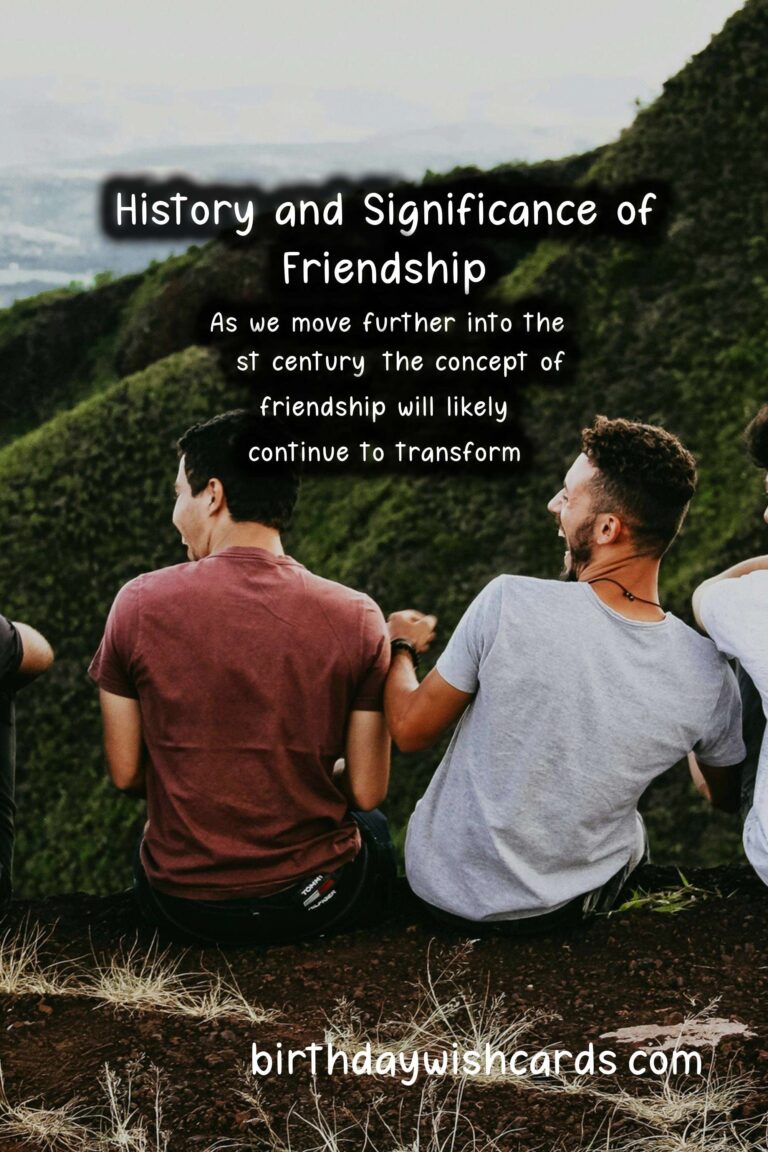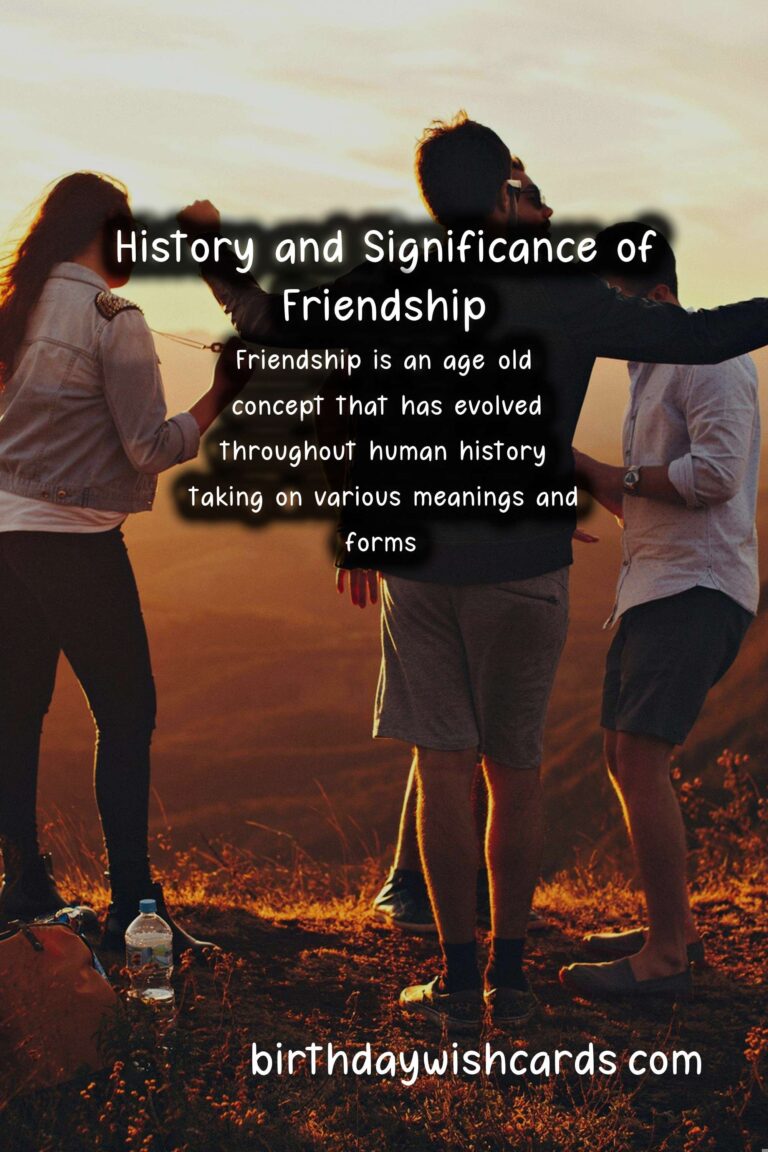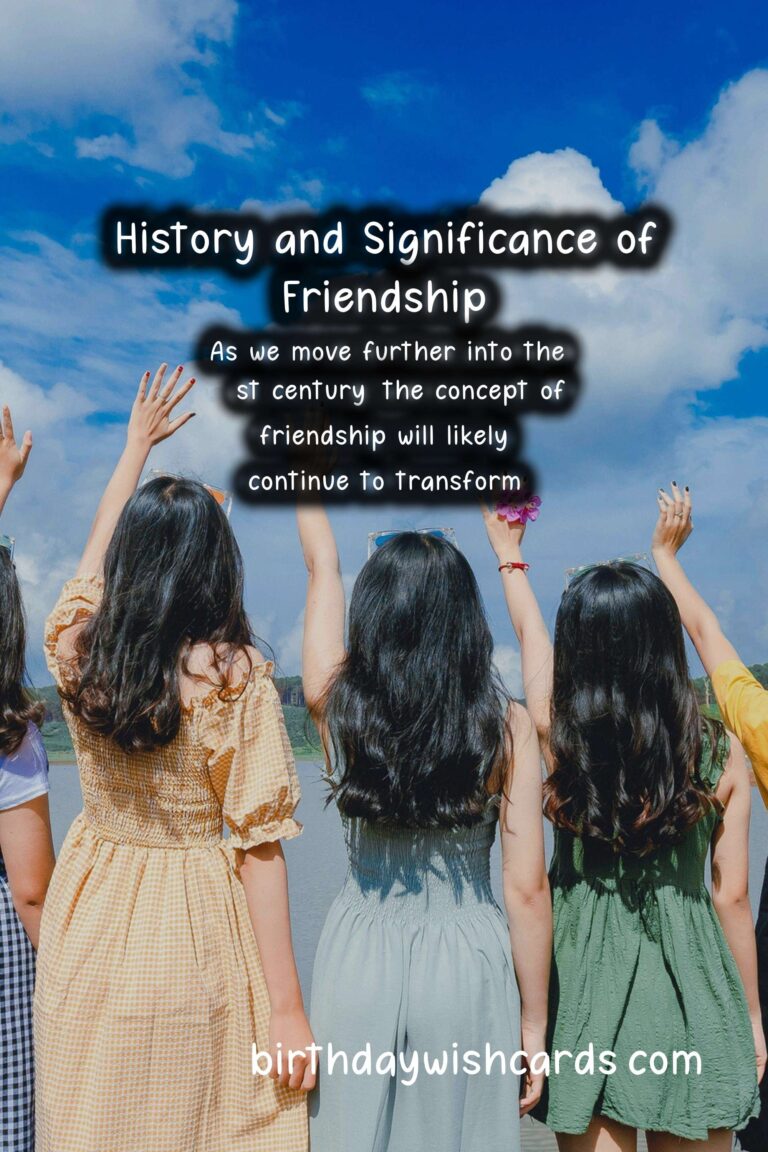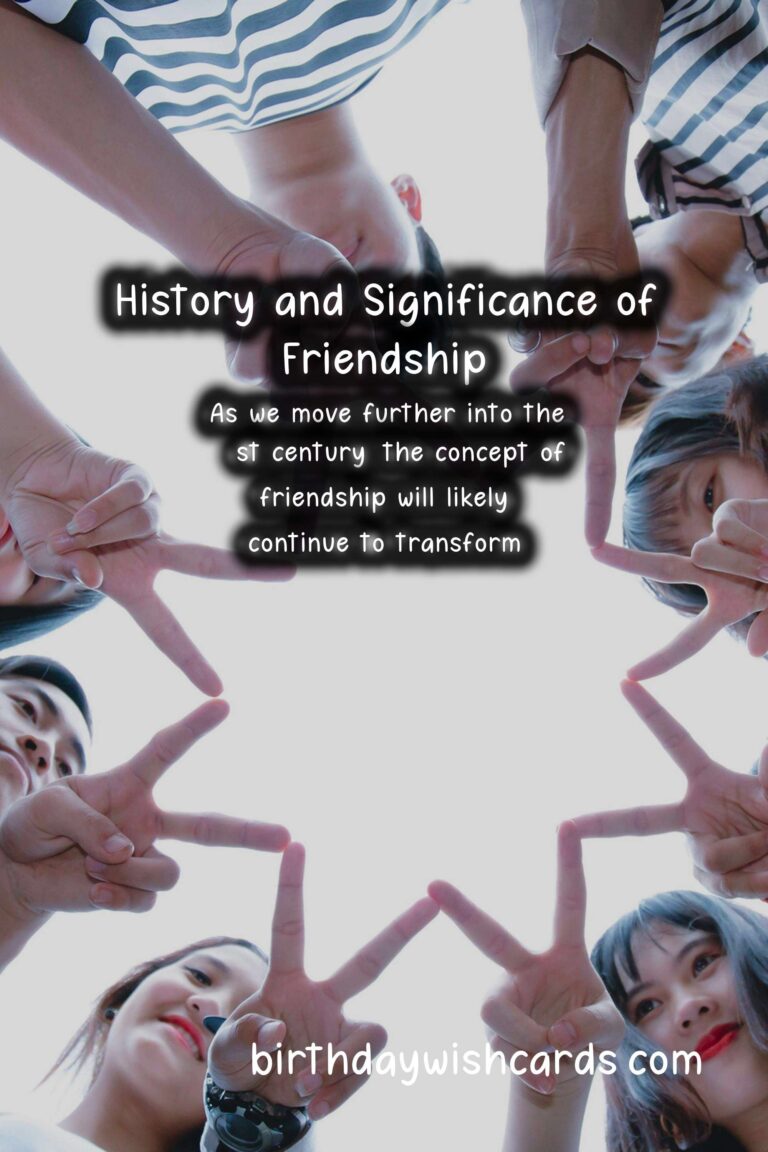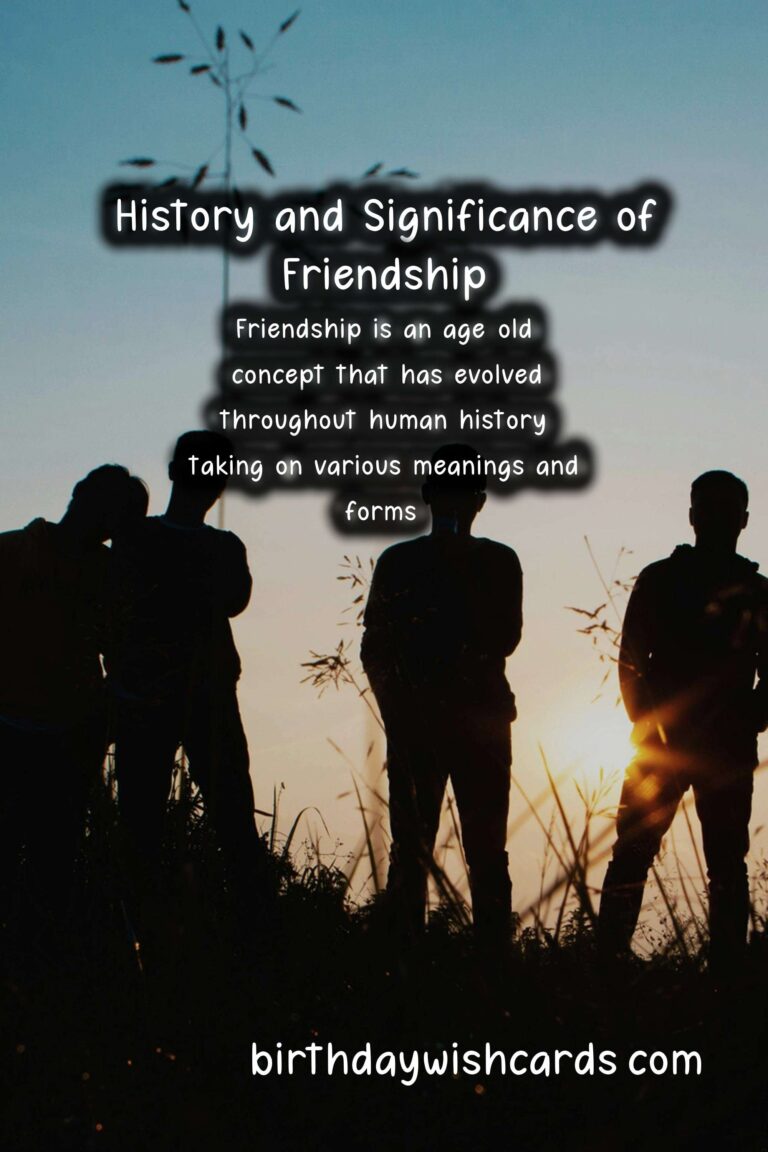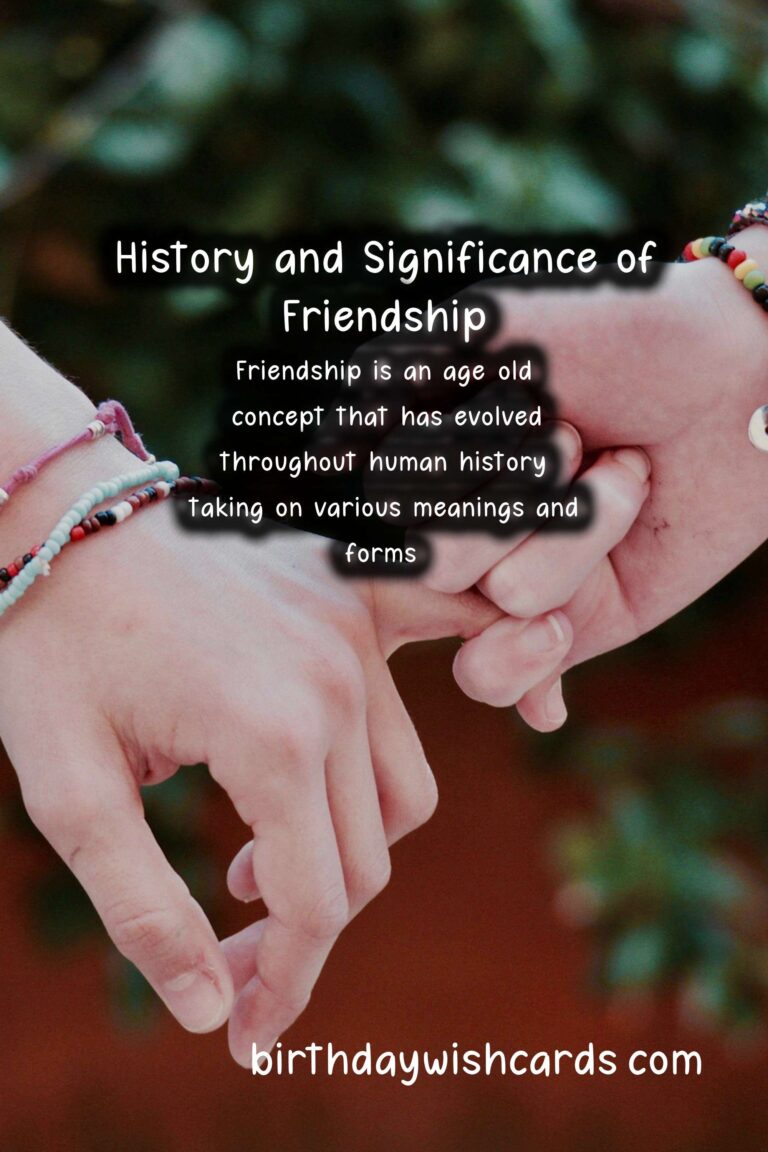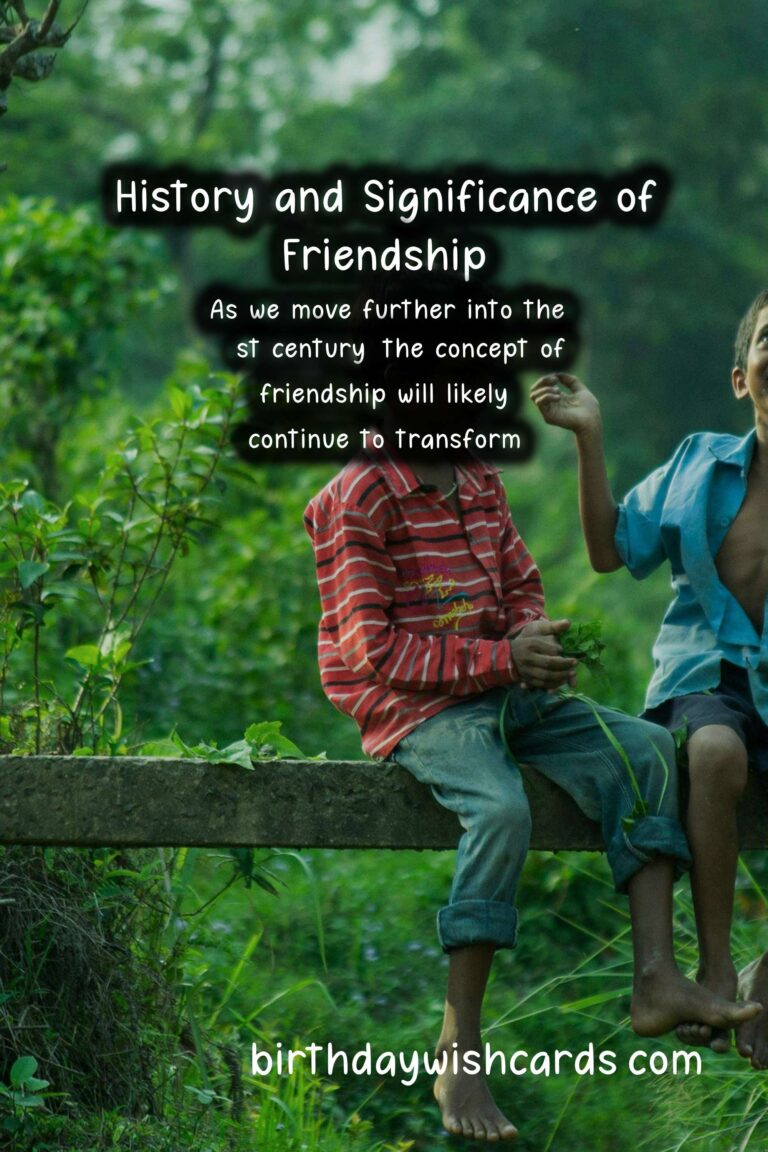
Friendship is an age-old concept that has evolved throughout human history, taking on various meanings and forms. It is both a personal bond and a social structure that has been fundamental in shaping societies. Its significance transcends cultural, geographic, and linguistic borders, reminding us of our innate desire for connection and companionship.
Ancient Perceptions of Friendship
The earliest written records of friendship can be traced back to ancient civilizations. In ancient Greece, philosophers like Aristotle considered friendship a vital component of a good life. In his work, Nicomachean Ethics, he categorized friendships into three types: friendships based on utility, pleasure, and virtue. Aristotle believed that the highest form of friendship was that based on virtue, where both individuals contribute to each other’s moral character.
Similarly, in ancient Rome, Cicero highlighted the importance of friendship in his essays, emphasizing loyalty and trust as foundational elements. The Romans viewed friendship as a vital social institution, crucial not only for personal relationships but also for political alliances.
Friendship in Different Cultures
Across different cultures, the understanding of friendship varies widely. In many Indigenous cultures, the concept of friendship often encompasses community, kinship, and collective identity. For instance, among Native American tribes, friendships are often built on shared values and the collective good of the community.
In Eastern philosophies, such as Confucianism, friendship holds deep significance. Confucius taught that friendship is essential for moral development and personal growth. It is seen not merely as a leisure activity but as a commitment to the well-being of others.
The Evolution of Friendship in the Modern World
As societies have evolved, so too have the forms of friendship. With the advent of technology and social media, modern friendships have taken on new dimensions. Platforms like Facebook, Twitter, and Instagram have transformed how we connect with others, leading to both positive and negative impacts on relationships.
While technology allows us to maintain connections over long distances, it can also lead to superficial interactions. The depth and quality of friendships may sometimes suffer in the face of virtual interactions, prompting discussions about the essence of true companionship in the digital age.
The Psychological Benefits of Friendship
Friendships have profound psychological benefits that are well-documented in psychological literature. Studies have shown that strong friendships can help reduce stress, improve mental health, and contribute to overall well-being. Friends provide emotional support, helping individuals navigate life’s challenges.
Moreover, friendships contribute to a sense of belonging and purpose. They enable personal growth through shared experiences and mutual encouragement. The comfort of friendship can act as a buffer against loneliness and anxiety, providing a crucial support system for emotional resilience.
Friendship through Different Life Stages
The nature of friendships often changes as individuals move through different life stages. In childhood, friendships tend to be formed around shared activities and interests. As one transitions to adolescence, these relationships may become more complex and emotionally charged. The teenage years often involve navigating social hierarchies and identity exploration, making friendships a crucial source of support and validation during this turbulent period.
In adulthood, friendships may take on additional meaning, often intertwined with work, family, and personal interests. The dynamics of adult friendships can vary greatly, influenced by factors such as work commitments, parenting responsibilities, and geographic mobility.
Challenges in Friendships
Despite the power of friendship, challenges often arise. Conflicts can emerge due to misunderstandings, jealousy, or competing priorities. Navigating these conflicts requires communication and empathy. Some friendships may not withstand the tests of time, leading to feelings of loss and grief when significant connections fade away.
Additionally, societal changes like migration, career advancements, and differing life choices can strain friendships. However, addressing these challenges can sometimes lead to stronger bonds, as individuals learn to adapt and understand each other’s evolving life circumstances.
The Future of Friendship
As we move further into the 21st century, the concept of friendship will likely continue to transform. The rise of artificial intelligence and virtual reality may redefine the nature of companionship. While technology has the potential to enhance connections, it also raises questions about authenticity and meaningful interactions.
Ultimately, the essence of friendship remains rooted in human connection, empathy, and shared experiences. Regardless of the medium through which friendships are formed, the fundamental need for companionship will endure, reminding us that at the core of our existence is the desire to connect with others.
Conclusion
In summary, friendship is a timeless and universal experience that significantly enriches our lives. Its history is intertwined with human development and social evolution, adapting to meet the needs of different eras. The value of friendship, however, remains constant. Nurturing and cherishing our friendships can lead to a fulfilling and meaningful life, enhancing our happiness and well-being.
Friendship is an age-old concept that has evolved throughout human history, taking on various meanings and forms. As we move further into the 21st century, the concept of friendship will likely continue to transform. 
